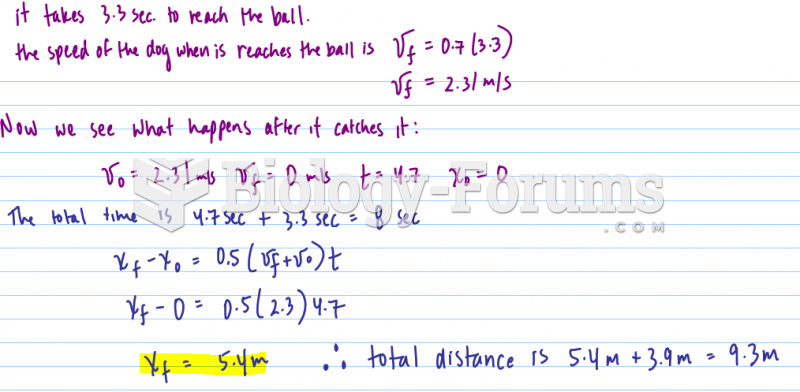|
|
|
Did you know?
In 2012, nearly 24 milliion Americans, aged 12 and older, had abused an illicit drug, according to the National Institute on Drug Abuse (NIDA).
Did you know?
The calories found in one piece of cherry cheesecake could light a 60-watt light bulb for 1.5 hours.
Did you know?
The average human gut is home to perhaps 500 to 1,000 different species of bacteria.
Did you know?
Blastomycosis is often misdiagnosed, resulting in tragic outcomes. It is caused by a fungus living in moist soil, in wooded areas of the United States and Canada. If inhaled, the fungus can cause mild breathing problems that may worsen and cause serious illness and even death.
Did you know?
Eat fiber! A diet high in fiber can help lower cholesterol levels by as much as 10%.
 Standing at the side and facing the head, apply shingles effleurage to paraspinal muscles of the ...
Standing at the side and facing the head, apply shingles effleurage to paraspinal muscles of the ...
 Direct pressure to deep rotator muscles using the elbow. Use the elbow tip to apply pressure moving ...
Direct pressure to deep rotator muscles using the elbow. Use the elbow tip to apply pressure moving ...





